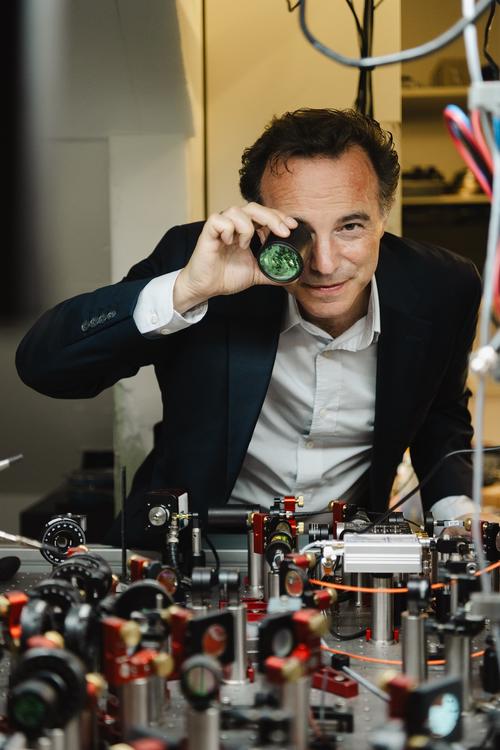24th Einstein Lecture: Prof. Dr. Markus Aspelmeyer
Quantum Physics and Gravity: How does Schrödinger's Cat's Clock tick?
Nov 25, 2025
Modern physics faces a philosophical dilemma: its main pillars, quantum theory and the theory of gravity, are based on assumptions about nature that are mutually exclusive. If quantum physics is correct, we must rethink our ideas about space and time. If Einstein's theory of gravity is correct, the role of quantum physics must be revised. Both theories cannot be universally valid at the same time.
This is an experimental problem. So far, we have no evidence that gravity requires a quantum description—our experiments currently only observe phenomena that can be explained by a classical theory of gravity.
Starting from this premise, Markus Aspelmeyer discusses the question of how to build a gravitational experiment that can no longer be described by Einstein's general theory of relativity. To do this, a quantum system must be made so heavy that it generates a measurable gravitational field. Then it would be possible to test directly whether gravity, and thus spacetime itself, follows the laws of quantum physics – or not.
Markus Aspelmeyer is Professor of Physics at the University of Vienna and Director at the Institute for Quantum Optics and Quantum Information - Vienna (IQOQI-Vienna) of the Austrian Academy of Sciences.
Aspelmeyer studied physics and philosophy in Munich. After completing his doctorate in solid-state physics at Ludwig Maximilian University in Munich in 2002, he moved into the field of quantum optics, where he worked as a Feodor Lynen Fellow of the Alexander von Humboldt Foundation with Anton Zeilinger, later winner of the Nobel Prize in Physics, at the University of Vienna. After establishing a research group as a senior scientist at IQOQI Vienna of the Austrian Academy of Sciences, he was appointed to the University of Vienna in 2009. Since 2019, he has also been the scientific director of IQOQI Vienna. In 2010 and 2011, Aspelmeyer was a guest at the University of Potsdam and Humboldt University Berlin as a Friedrich Wilhelm Bessel Research Award winner.
Aspelmeyer and his team are exploring quantum phenomena in entirely new areas. His current research focuses on the fascinating mysteries surrounding quantum physics and gravity. He has received numerous international awards for his work on quantum control of macroscopic solid-state systems (quantum optomechanics). Inter alia, he is a member of the Austrian Academy of Sciences and the Academy of Sciences in Hamburg.

